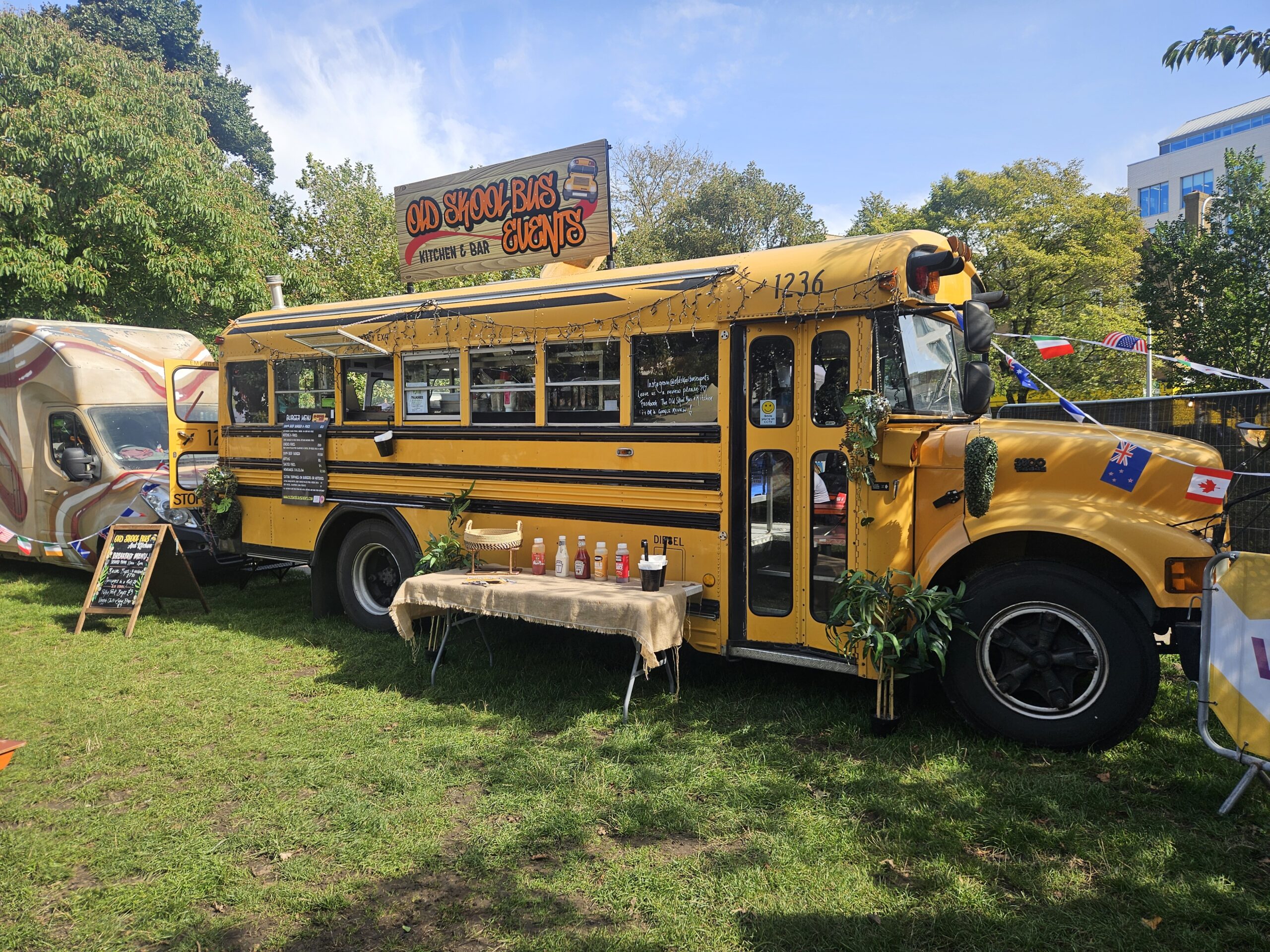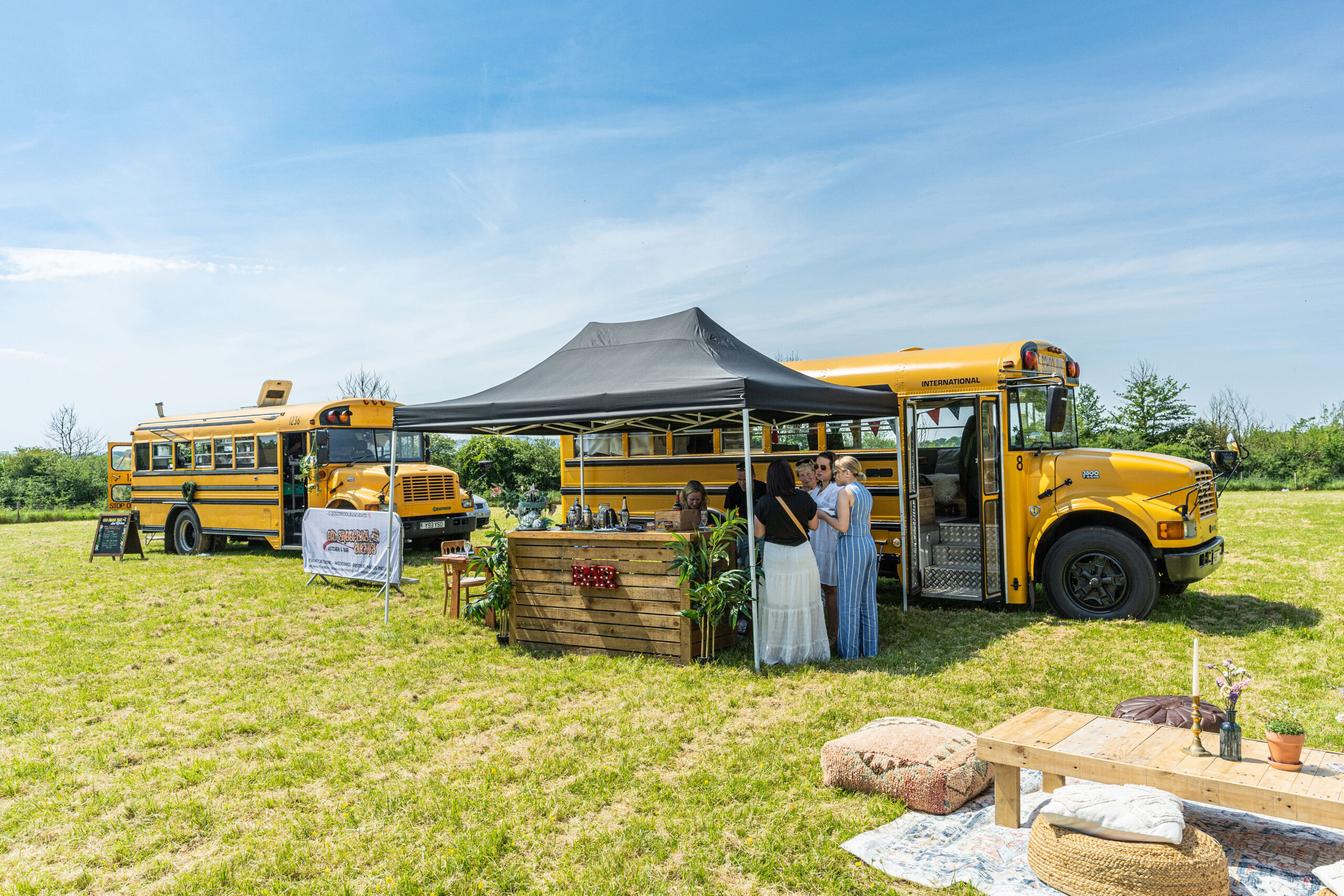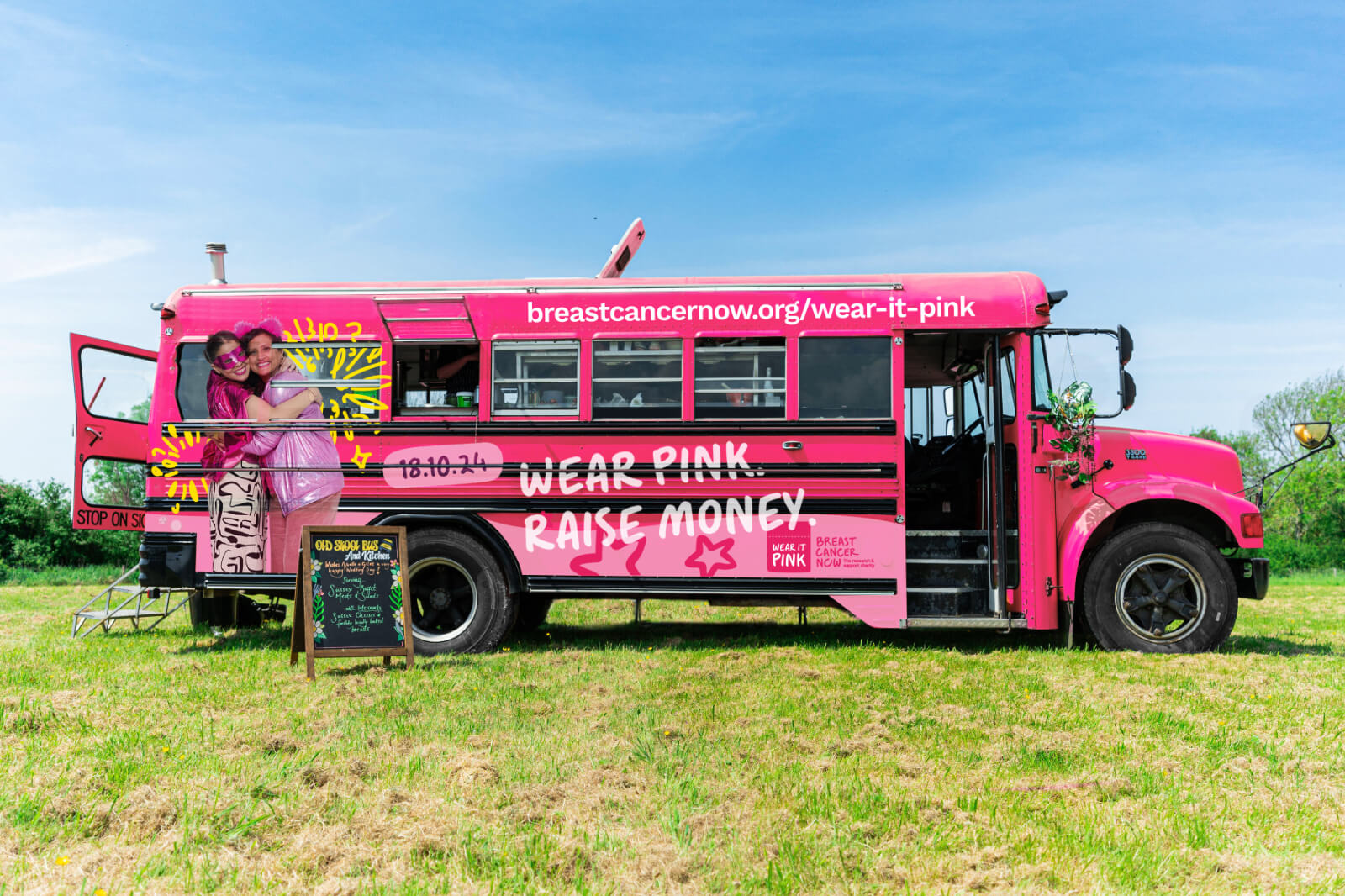Glastonbury – History and Logistics
We’ve been meaning to write a piece for quite some time on our biggest and favourite festival – Glastonbury! Over the last three years, we’ve had the privilege of catering in the east camper van fields, serving cooked breakfasts all morning and cheesy sourdough toasties and loaded fries in the evening to punters returning from their late night raving. We love everything about the festival – the atmosphere, culture, diversity, music, and serving our delicious food to the masses!
Since the first festival was held on the day after Jimi Hendrix died in 1970, it’s been growing ever since in size and popularity. While over 50 years ago, around 1,500 people attended, paying just £1 per ticket (which included a bottle of milk from the farm), the 2024 event had a capacity of 210,000 visitors, with tickets costing £360 and selling out in minutes. With the most popular artists in every genre imaginable headlining over sixty stages, fans travel from all over the world to attend the most prestigious and energetic event of the whole year. And we are so proud to be a small part of this.
But this festival is a serious operation, with a team of dedicated professionals working year round to produce it. The official big build starts in April each year, and by May hundreds of workers come together to construct the infrastructure, water and steel shield fence which spans the 1.5 mile area of Worthy Farm, turning it into a vibrant city for ticket holders, crew, volunteers and artists two months later.
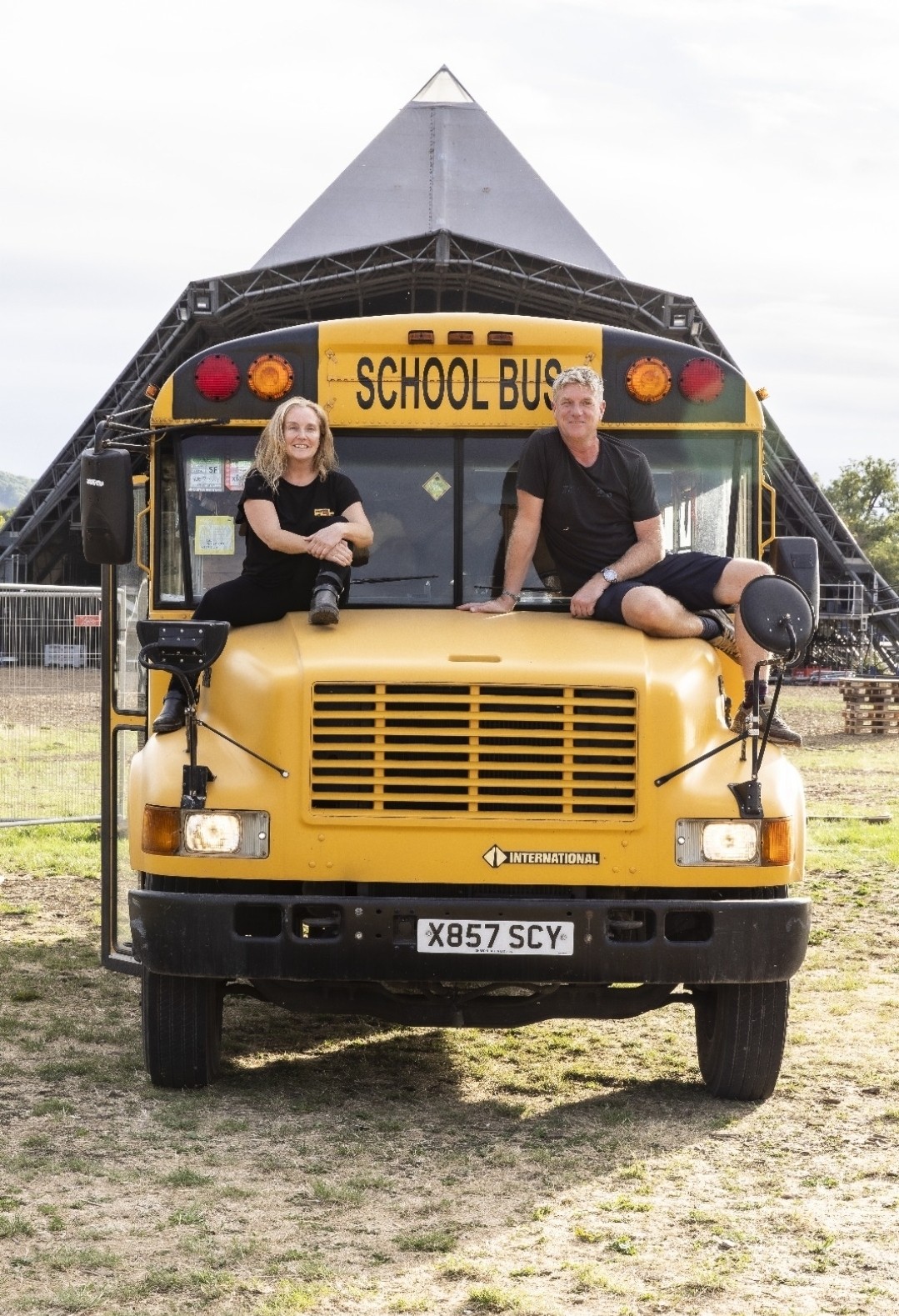
Glastonbury Ethos and Charity Fundraising
For us, this festival is more than just the music and good vibes. As a business, we align with the whole ethos of Glasto, with one of its driving forces being to raise money and awareness for the festival’s chosen charities, which are currently Oxfam, Greenpeace and WaterAid. Oxfam is a charity dedicated to providing safe, clean water and food for all, tackling climate change, women and gender justice and responding to emergencies to create a community that tackles world poverty. Greenpeace is a global campaigning network who are committed to defending the natural world and working for a green and peaceful future. WaterAid is an international not-for-profit, determined to make clean water, decent toilets and good hygiene normal for everyone, everywhere within a generation. And in 2023, these charities received over 3.7 million pounds in donations!
Like Glasto, we are also passionate about contributing to fundraising events, and have even set up our own to support both local and global charities, such as Knight Support in Brighton supporting homeless people, and the Wear It Pink Campaign for Breast Cancer Awareness Month.
In 2020, one of our first charity contributions was with Knight Support, where our dedicated team of volunteers supported the homeless in Brighton and Hove over Christmas by wrapping presents, making stockings and preparing roast dinners. We gave Christmas food and gifts to 60 vulnerable young people and asylum seekers in their council accommodation on Christmas Day, gave over 100 Christmas roast dinners and puddings to homeless shelters and direct to the streets and provided winter coats, gloves, hats, new socks, toiletries and packaged food supplies to the homeless.
Jump to this year and we’re still just as invested in charity initiatives, such as the Wear It Pink Campaign for Breast Cancer Awareness Month, where we had a designer create a fab image of the bus branded to raise awareness. We helped do our bit by offering local businesses the opportunity to order a work lunch, and our amazing volunteer staff delivered sarnies, baps, bagels, snacks and cans of drink to local businesses, with £8 per lunch going straight to charity. Our menu included hot pulled pork baps, bacon and egg baps, BLT New York bagels, Vine tomato, mozzarella and pesto bagels, pastrami, swiss cheese and pickle bagels and roast veg, rocket and hummus bagels.
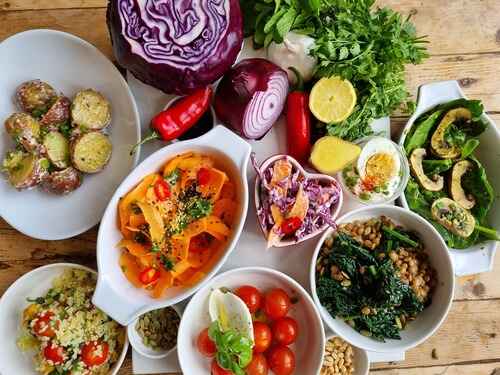
Sustainability and an Upcoming Announcement!
Before we get carried away with food talk, another main factor of Glastonbury is their commitment to sustainability. Over the years, the organisers have invested in initiatives to reduce the festival’s impact on the environment. Introducing food compost initiatives, solar panels and biofuel recycling on site, running a tree planting programme and taking measures to use less water all contribute to the festival’s positive net impact.
In order to reduce plastic consumption, in 2019, Glastonbury banned the sale of single-use plastic bottles, which – according to the site owners – has reduced the number of disposable plastic on site by millions. Vendors, including ourselves, now only sell Life Water in cans. The festival also continues to work conscientiously to reduce non-recyclable waste and promote more sustainable alternatives. For example, they only accept the use of compostable or reusable plates, cutlery and drinking straws, as well as cutlery made from FCS-assured wood from all vendors. This means that we also adhere to and believe in these initiatives to help make the festival more sustainable and contribute to leaving no trace.
To find out more about Glastonbury’s sustainability, see here: How sustainable is Glastonbury Festival? – The Eco Experts
We also pride ourselves in our quality supply chain, using local sustainable suppliers close to the site to reduce food mileage and serve fresh and delicious quality meals to the campers.
As you can see, we feel a great affiliation with Glasto, so we are looking forward to participating in the festival in a slightly different way in 2025 and beyond – stay tuned!
